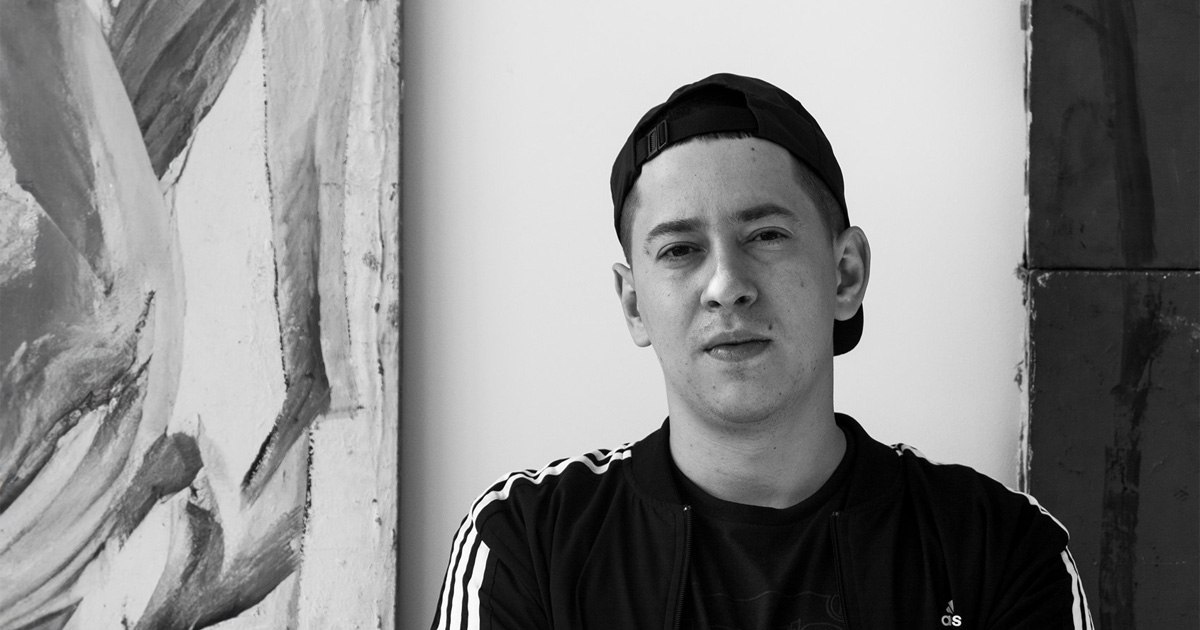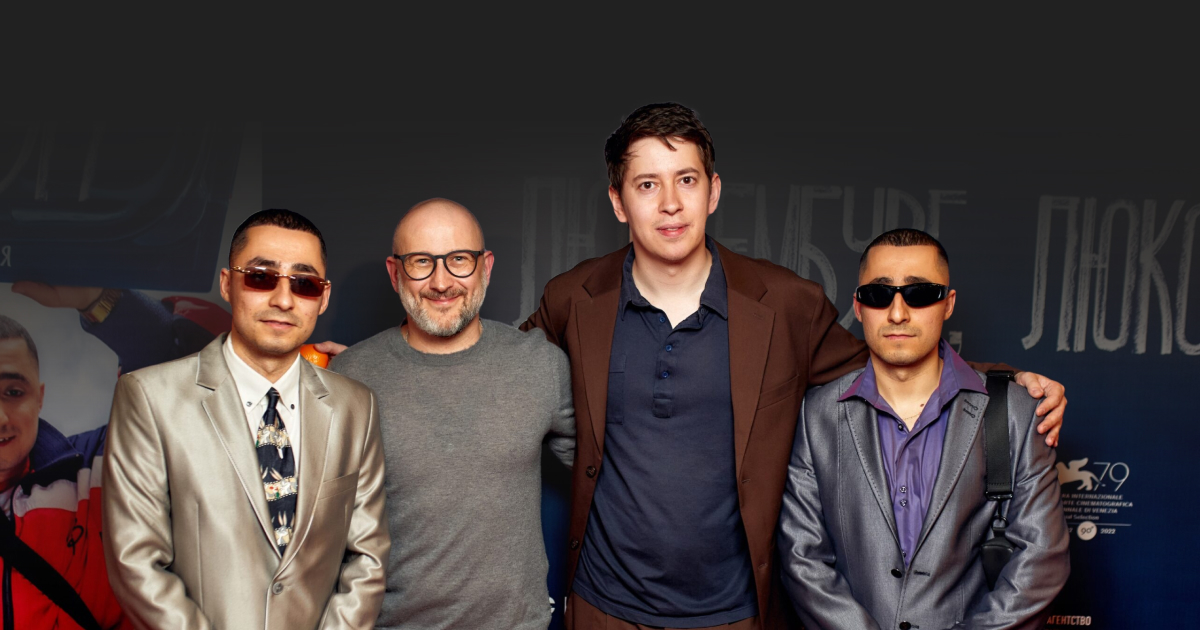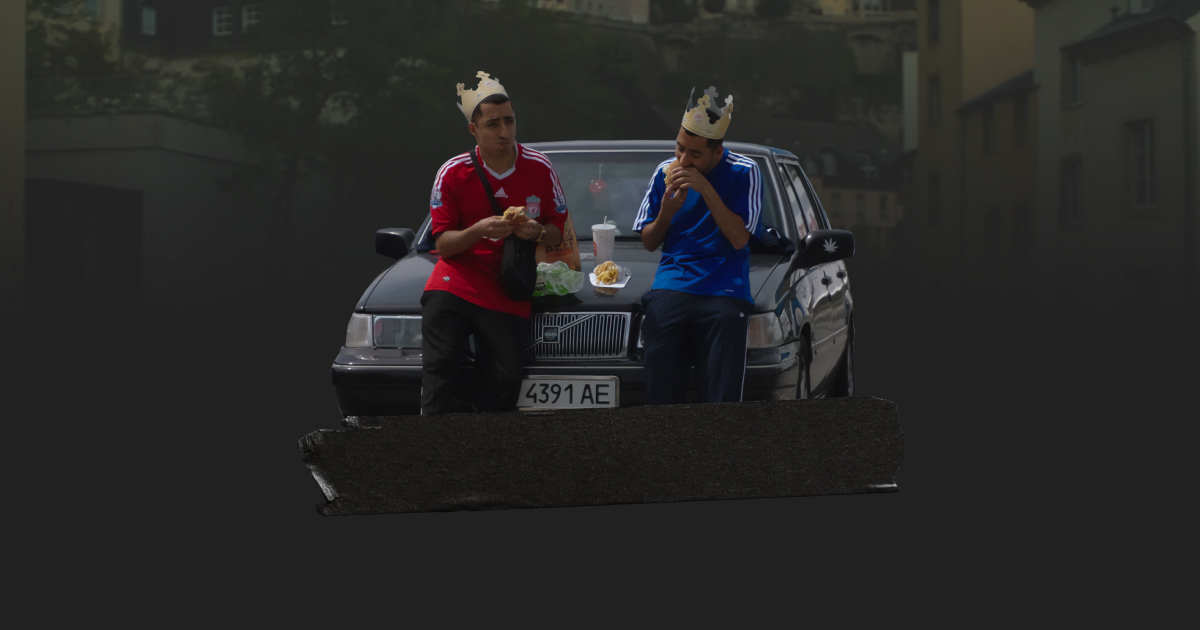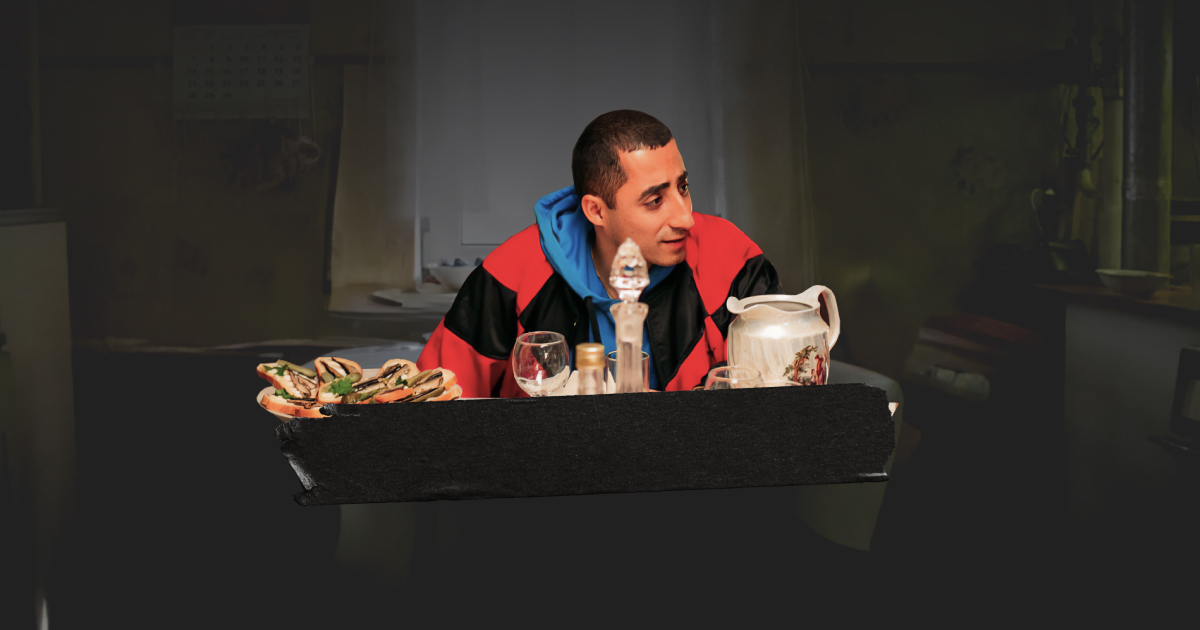"It is legal to laugh when you watch a Ukrainian film". Interview with film director Antonio Lukich

"I adhere to the idea that creativity has not cause-and-effect, but effect-and-cause relationships," says Antonio Luckich. As a result, he begins his films not with a problem but with an attempt to combine ideas and images that he imagines or sees in real life.
Director Antonio Lukich made his feature film debut in 2019 with the tragicomedy My Thoughts Are Silent (Ukrainian: «Мої думки тихі», romanised: Moii dumky tykhi). On April 13 this year, his second film, Luxembourg, Luxembourg, was released in Ukrainian cinemas. In the story, when twin brothers find out that their long-lost father is ill in Luxembourg, they embark on a journey to see him for the last time.
Over 36 thousand viewers watched the film in its first days of release. "This is the second-best start among Ukrainian films since the beginning of the full-scale invasion," commented the Ukrainian State Film Agency. And from June 14, the film will be available on Netflix.
Svidomi talked to Antonio Lukich about Luxembourg, Luxembourg, new films, and how Ukraine is represented worldwide.
— How do foreigners react to Luxembourg, Luxembourg? Do they catch the Ukrainian context?
— In fact, it is challenging to translate humour. Kolia says, "I know shit", and the translation is, "I don't know". Kolia says "biddy"; the translation is "оld lady". Vasia says, "Revo"; the translation is "alco energy". But even if some humour is lost, everyone follows the story with interest. The reaction may have been more restrained than I expected, but we always heard applause on the stage with the holy water — the reality of our Orthodox traditions was clear.

The reaction is different even in our cities when you show the film in Kyiv, Lubny, or Poltava. It was interesting to see how people in Poltava, for example, have a keen recognition of themselves in the story; Kharkiv residents were amused by the line with the girl and the car with the stickers "My Life, My Rules"; in Odesa, we talked a lot about humour, and in the West, we talked about the significant components of the story.
— In Ukraine, the screenings took place in Blyzniuky and Uzhhorod (Antonio Lukich is from Uzhhorod, the lead actors of the film, Amil and Ramil Nasirovs, are from Blyzniuky in the Kharkiv region - ed.) Was it essential for you to screen these films at home? How were they perceived, and how did the reactions differ?
- If the Lubny audience recognised the town, the people who watched in Blyzniuky recognised the boys. Each of their appearances in the film caused a strong reaction. As I am from Uzhhorod, I was much more nervous before the screening than in Venice. It's one thing to be embarrassed in front of the Italians and the international community and another in front of my class teacher and neighbours who came to watch.
We did not expect the film to be so popular in Ukraine. However, despite its festival history, we understood it was a film for the Ukrainian audience.
The reaction exceeded our expectations: mine, the producers', and perhaps even the guys [Amil and Ramil Nasirovs], who were worried about their reputation after they starred in the film.
— How did you work with the image of the twins in the film?
— I used to stick to the formula that the image in cinema was how our thoughts found their way into the material world. I don't know if there was an image in the film, but there was a specific idea of duality and a double attitude towards some critical issue. The work began at the script stage, and then we looked for jokes and "Easter" stuff with the twins that could be used in the film.
— Why was Lubny chosen as the location? Why not use Blyzniuky, where the main actors are from?
— Lubny fits the guys' surzhyk. And most importantly, unlike Blyzniuky, Lubny has minibuses.
— And why Luxembourg?
— I checked Facebook today. For some reason, human nature reacts to thousands of good reviews less than one bad one. I read somewhere that if they had gone to Myrhorod instead of Luxembourg, nothing would have changed in history. I disagree with that.
This film concerns insignificant people who go to a small, almost fictional country. Every country, when you say it, instantly evokes associations. Luxembourg is associated with dreamy wealth and well-being-something to do with the word 'luxury'.
One film critic tried to explain this film as a story. If we imagine that the boys are Ukraine, then their journey is like Ukraine's attempt to find a father figure in Europe. Perhaps this is because, after 2014, we started building bridges of understanding with the whole world. It's a big challenge to explain how our reality works, not to post-Soviet countries, but to those slightly ahead of us in terms of development.

That's why it seemed to me an interesting explanation of the whole metaphor of the boys going to Luxembourg to find their father, the dream reality they don't know. But in the end, they realise that this father figure should be seen not somewhere else but at home. And to accept him as he is.
— Even in the film trailer, there was a phrase: "This is Luxembourg; listen to this. There are no broken troughs there". So is this a story about "it's good where we are not"? Given that the song with the similar title by Okean Elzy was also played in the film.
— It's more of an irony about our ideas that it's better somewhere else. No, it's better at home. And we understand this as much as possible now. People who have left realise that home is the best place to be. Maybe somewhere in Canada is not bad (laughs - ed.), but Ukraine is also good. Therefore, this is an attempt to demythologise the stereotype that if you are looking for this father somewhere, you should do it exactly where there are some imaginary treasures.

— You said that the story of the old lady who broke her arms because of the bus driver was a real story of your grandmother. What other real-life stories were used as the backdrop for the film?
— A lot of it is based on my way of working. My films usually do not grow from a general idea of what I want to tell. So, for example, let's tell a story about brothers; or a story about acceptance or separation — you run a great risk of getting lost in the subject if you don't know what you're going for.
I adhere to the idea that creativity has not cause-and-effect but effect-and-cause relationships. So first, you imagine some individual scenes and then think about how they are connected. Similarly, David Lynch explains how he creates his films: images appear in his head, and then he looks for a way to combine all these 70 or so images into one coherent picture.
When the hero of the story appears, he helps. Everything that you spy, for example, candy in a bus, or some personal stories related to the complexity of European ritual processes, the hero helps you somehow glue together.
"Luxembourg, Luxembourg is not a documentary reconstruction of life, inspired by real situations, like with my dad, grandma, the minibuses and the policeman, which was a separate storyline altogether - trying to live everyday life and understanding my father as a person who can show you the right way by a bad example rather than a good example.
— Ukraine is now perceived primarily through the prism of war. What was it like for foreigners to see such a film with elements of humour?
— This is a complex topic for me and the producers. There are certain expectations from Ukraine. At film festivals, there is a place we call the "festival ghetto" - films with a pronounced exoticisation, about people who are constantly suffering.
Before the film presentation, I sometimes told foreigners that it was legal to laugh when you watch a Ukrainian film. This is because we have a sense of humour, which is unusual for them.
Everyone is used to perceiving us as a country of the third culture. It's sad, and we need to work on it a lot. But, in some ways, our film is a statement that we are modern and capable of making good films with drama and an exciting view of life.
Another thing is that the film was made before the full-scale invasion of some other reality. It's hard to imagine such films in the future. Today I would not have made My Thoughts Are Silent or Luxembourg, Luxembourg. Today, our whole life is about war. I think we will have a decade of films about war, and I don't know if we will be able to overcome this image in the future.
If you see a film from the countries of the former Yugoslavia, it will always be a story about a trauma that has not been talked about in their society, even 30 years after the war. However, we are already trying to talk about it. In some ways, we are much more advanced and modern than many worldwide.
— What is essential for you, as a director, to do, and what image do you want to build for Ukrainian cinema?
— I want our films to get an appreciation for their quality.
— What image of mothers do you create in your films? What is it based on?
— I don't consider cinema an advertising tool to show what good or bad mothers we have. The mother's character is based on observations of people I know well. It's not a documentary but an attempt to transfer the traits of a living person to a film character and thus emphasise them. Not to make a caricature of a person but to make them recognisable. The mother's character is based on anxious care for her loved ones.
— You have also directed TV series, and many people don't know about this. Could you tell about them for those who want to get to know your work better?
— If people want to get acquainted with my work, they should watch My Thoughts Are Quiet and Luxembourg, Luxembourg. But, on the other hand, if you're going to get acquainted with my work, then yes, you can get acquainted with the series.
It's hard for me to recommend the series Kings of Chambers because it was more like work. But the series Sex, Insta and ZNO succeeded in many things. It is sometimes compared to Euphoria, but not in our favour. The budget for Euphoria was $3 million, and the budget for Sex, Insta and ZNO was $10,000. The casting is great; there are some excellent scenes. Perhaps we should have worked harder on the script and preparation, but unfortunately, perfectionism is challenging to reconcile with the realities of production and life.
— Is the work on My Thoughts Are Silent 2 still in progress?
— No, this film is on hold.
— What film are you working on?
— On the third one (laughs - ed.)
— In an interview with Suspilne. Culture, you said that it would be an angry film — the first two films were told from the point of view of love, "and now we are outraged". Can this be considered a kind of reflection on the full-scale war?
— More like the consequences. It is a film about a man who died but, for some reason, continues to live. No one can help him but himself. I can't tell you anything more because I'm still trying to come up with something. I've been working on this story for about a year — usually, scripts take three years to write.
Films are not the right story to reflect on the events of today. They take a lot of time to make, there's a complicated production process, and it's even more complex to find the money to make them.
— Have you watched a film since February 24? What kind of film?
— Not much. For some reason, I watched A Serious Man by the Coen brothers. It reminded me that sometimes you have to be able to accept things as they are.
I can't remember anything else. I watched Luxembourg, Luxembourg about 200 times (laughs - ed.).


